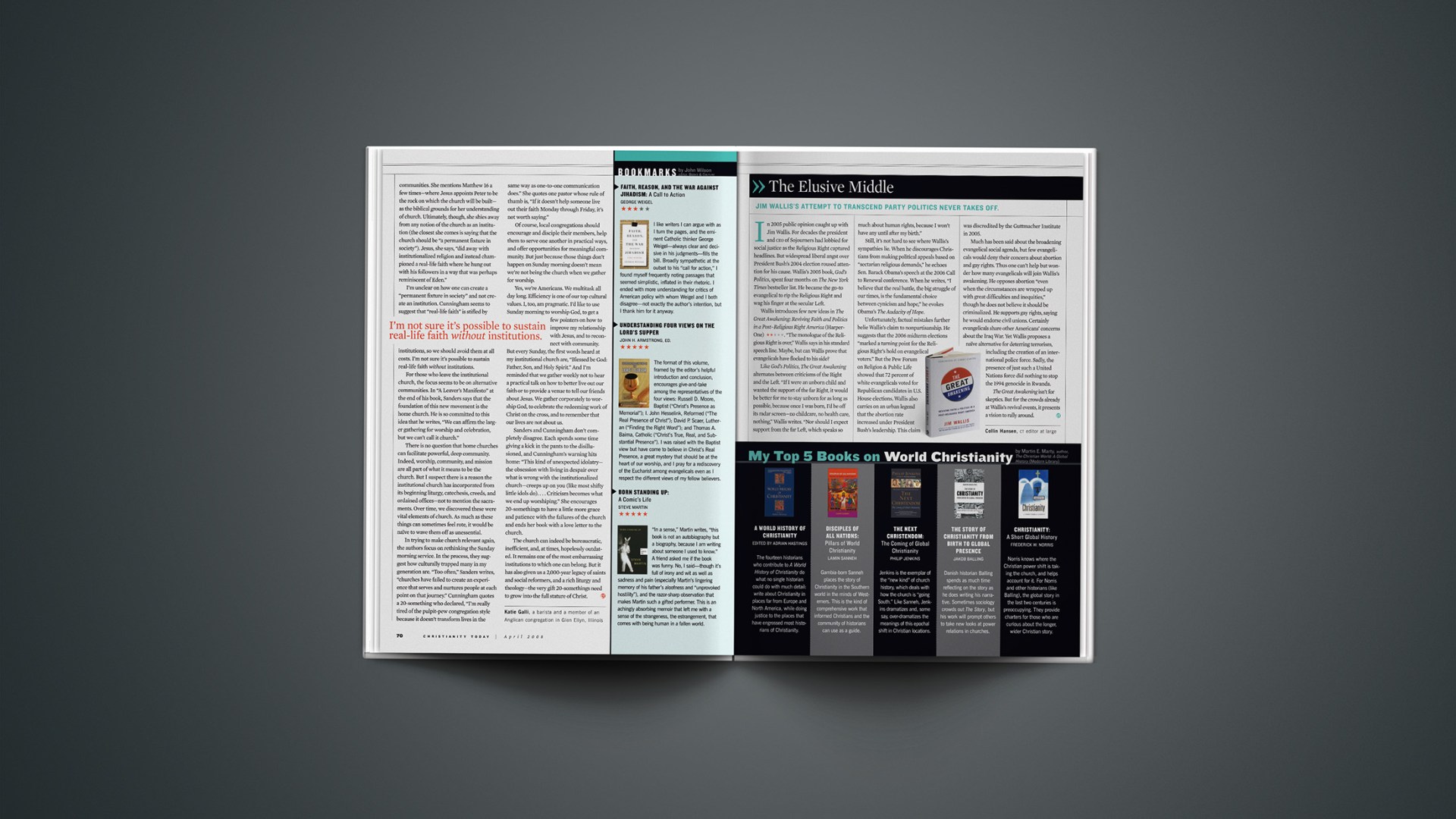In 2005 public opinion caught up with Jim Wallis. For decades the president and CEO of Sojourners had lobbied for social justice as the Religious Right captured headlines. But widespread liberal angst over President Bush’s 2004 election roused attention for his cause.
Wallis’s 2005 book, God’s Politics, spent four months on The New York Times bestseller list. He became the go-to evangelical to rip the Religious Right and wag his finger at the secular Left. Wallis introduces few new ideas in The Great Awakening: Reviving Faith and Politics in a Post–Religious Right America (HarperOne). “The monologue of the Religious Right is over,” Wallis says in his standard speech line. Maybe, but can Wallis prove that evangelicals have flocked to his side?
Like God’s Politics, The Great Awakening alternates between criticisms of the Right and the Left. “If I were an unborn child and wanted the support of the far Right, it would be better for me to stay unborn for as long as possible, because once I was born, I’d be off its radar screen—no childcare, no health care, nothing,” Wallis writes. “Nor should I expect support from the far Left, which speaks so much about human rights, because I won’t have any until after my birth.”
Still, it’s not hard to see where Wallis’s sympathies lie. When he discourages Christians from making political appeals based on “sectarian religious demands,” he echoes Sen. Barack Obama’s speech at the 2006 Call to Renewal conference. When he writes, “I believe that the real battle, the big struggle of our times, is the fundamental choice between cynicism and hope,” he evokes Obama’s The Audacity of Hope.
Unfortunately, factual mistakes further belie Wallis’s claim to nonpartisanship. He suggests that the 2006 midterm elections “marked a turning point for the Religious Right’s hold on evangelical voters.” But the Pew Forum on Religion & Public Life showed that 72 percent of white evangelicals voted for Republican candidates in U.S. House elections. Wallis also carries on an urban legend that the abortion rate increased under President Bush’s leadership. This claim was discredited by the Guttmacher Institute in 2005.
Much has been said about the broadening evangelical social agenda, but few evangelicals would deny their concern about abortion and gay rights. Thus one can’t help but wonder how many evangelicals will join Wallis’s awakening. He opposes abortion “even when the circumstances are wrapped up with great difficulties and inequities,” though he does not believe it should be criminalized. He supports gay rights, saying he would endorse civil unions. Certainly evangelicals share other Americans’ concerns about the Iraq War. Yet Wallis proposes a naïve alternative for deterring terrorism, including the creation of an international police force. Sadly, the presence of just such a United Nations force did nothing to stop the 1994 genocide in Rwanda.
The Great Awakening isn’t for skeptics. But for the crowds already at Wallis’s revival events, it presents a vision to rally around.
Copyright © 2008 Christianity Today. Click for reprint information.
Related Elsewhere:
Ted Olsen interviewed Wallis about abortion, gay marriage, and biblical orthodoxy.
Wallis’ most recent book, The Great Awakening, is available from ChristianBook.com and other retailers.
John Wilson profiled Jim Wallis in 1999.










